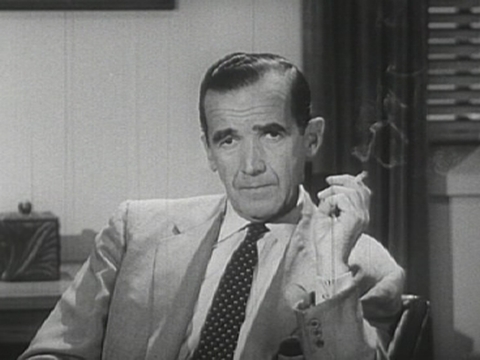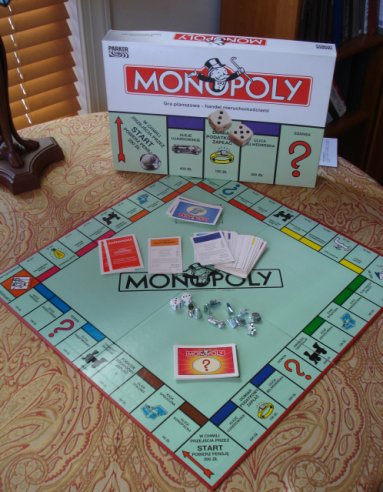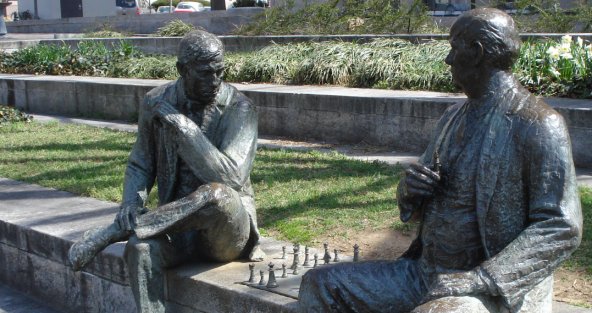
Those of us who got our jobs in the old USIA grew up professionally with the example of Edward R. Murrow. Murrow was a great newsman when newsmen were great. He was director of USIA & we remember him for the “last three feet”. Murrow observed that communications spanned the world, but real persuasion happened when people made personal connections, in the last three feet. Of course, we cannot talk personally to millions or billions of people and the challenge remains how to bridge those last three feet on a massive scale. It is a paradox, like mass customization. But mass customization is demonstrably possible with computer aided design and manufacture. Maybe technology can help us too. New communications technologies give us lots of opportunities to reach out in more personalized and interactive ways. We can talk and listen in real time and engage and in ways that were not possible only a short time ago. And my colleagues are trying to figure out how to use new technologies and old techniques in new ways to adapt and engage in a mutually respectful communication.
I don’t think they get noticed enough. It is the usual problem. People doing good things are too busy doing to have time to talk about them. So I am making it my business to find success. Let me start with CO.NX. CO.NX is the fastest growing IIP program in recent months. It is the multimedia descendent of the simple webchats we started to do regularly a few years ago, but the character has totally changed in the course of its evolution. We knew we were in a different league when we got 45,000+ questions during an election night program. Much of this change was facilitated by technological improvements and changes in organizational culture.
CO.NX use Adobe Connect, which is a very simple but effective interface. It requires the recipients to download no software and a reasonably adept participant can be using the program within minutes. Participant do not have to register, which is a big deal in many places. It takes up little bandwidth, which is crucial given the vast diversity of technologies used by our audiences worldwide. Important for the same reason is its scalability. Anything from interactive video to simple text is possible, so countries and individual audience members can participate at the level and to the extent they prefer or their equipment allows. Programs are only useful in the context of the communities they create. The creation of communities, both entirely online and online facilitated face-to-face communities, is the key to CO.NX’s recent meteoric rise. The key to the communities has been Facebook and Twitter to a lesser extent. (Although we work across platforms, these are the ones currently producing the best results). The original webchats relied on list serves. This method is a clumsy way to reach an audience and does not easily facilitate discovery of new members or the viral spread of information.
Facebook provides an excellent framework to connect the various parts of CO.NX. It allows a simple way for people to become part of an online community as well as a place where information can be disseminated. In addition, Facebook engagement is phenomenally well targeted and inexpensive. First, you can simply engage through friends already in the community, but you can also search out interested new people with targeted advertising. A recent outreach to build an audience in Pakistan among people interested in the new U.S. strategy in the region produced 203 participants for the program in about twenty four hours at the cost of just a little more than $35.00. IIP research indicates that each of these participants has an average of 183 friends, which means that we touched an audience in the thousands, even accounting for overlap among friends networks. Beyond that, the program made its way into the Pakistani blogosphere where the new U.S. policies were explained and discussed by opinion leaders. A program like this would have been impossible to arrange a few years ago, no matter the price we were willing to pay.
CO.NX can engage with audiences sorted by age, gender, location, university affiliation and even by major at the university, among other categories. It is an amazingly effective tool and it means that we no longer have to put our product out there and wait for a reaction. We can proactively shape the public affairs terrain where we participate. Another free technology CO.NX is using is YouTube. As I mentioned above, CO.NX can have a video component and most programs do. Parts of these videos have been put onto YouTube, sometimes by the CO.NX people directly and sometimes by others, which show the interest our programs are generating. If imitation is the sincerest form of flattery, how much better is a direct copy? In addition, in the Internet world, having someone other than ourselves post adds to the credibility. Secretary of State Hillary Clinton and President Obama himself are among those whose images and statements have made it into cyberspace with the facilitation of CO.NX.
Of course, the IIP CO.NX staff is very small. There is no way that a couple of full time employees and a few interns can effectively reach the whole world, no matter the technological leverage they enjoy. Fortunately, IIP enjoys the support of a human network worldwide – our posts and IRCs overseas. A network solution is emerging, with IIP providing the initial information, training and platforms, and people from posts overseas becoming more autonomous and helping each other. This is especially crucial in time zones far removed from Washington.
Posts such as Afghanistan, China, Thailand and Mexico have been avid pioneers in independently using the CO.NX system. Secretary of State Clinton did a live town hall CO.NX program from Belgium. A member of the IIP CO.NX staff was dispatched to advise, but the posts did all the heavy lifting for this immensely successful outreach. This is as it should be and as it will become more commonly. Note: CO.NX was a useful tool in building realationships with Turks around President Obama’s talk to students in Istanbul. Follow this link to read about how the robust system worked.
Our overseas posts understand the local environments, can speak the languages and have the opportunity to build robust relationships, bridging the last three feet that Edward R. Murrow talked about. That is what we need for persuasion and there is no substitute, but IIP CO.NX is helping us get in range and maintain relationships across space and time zones. It is something simple that works.


























